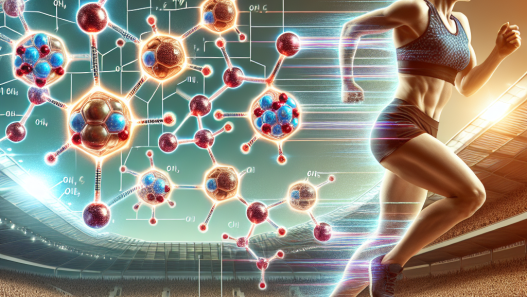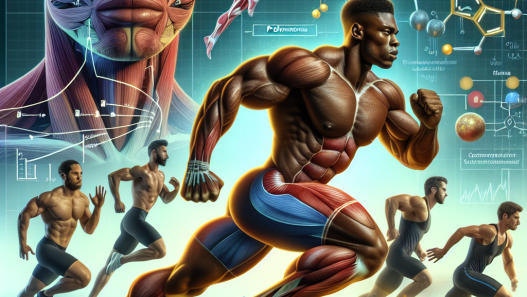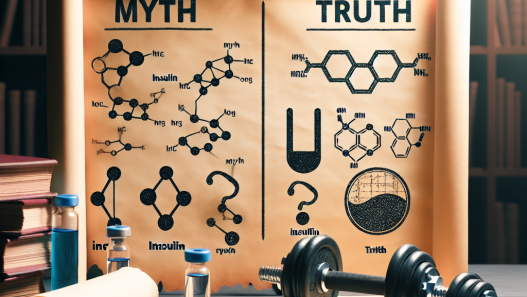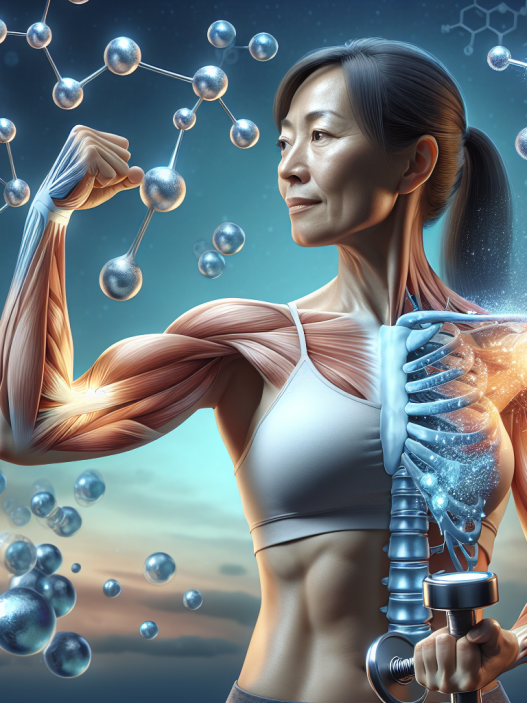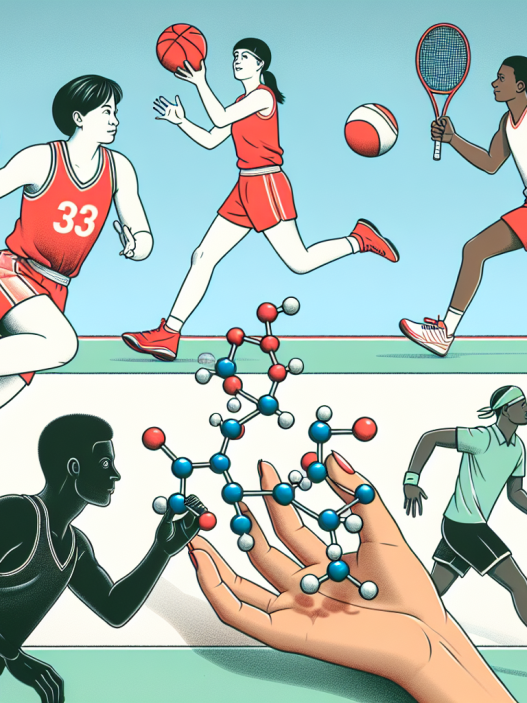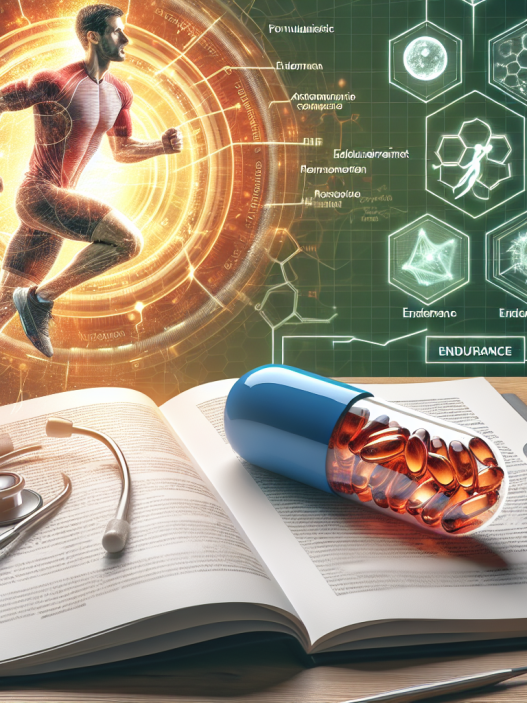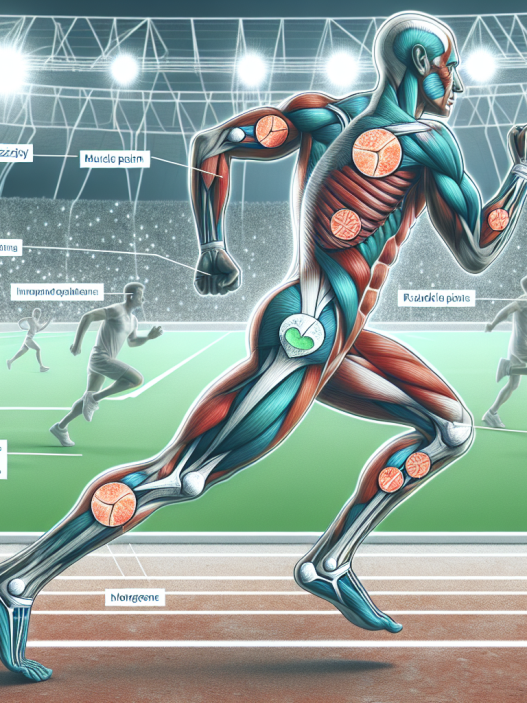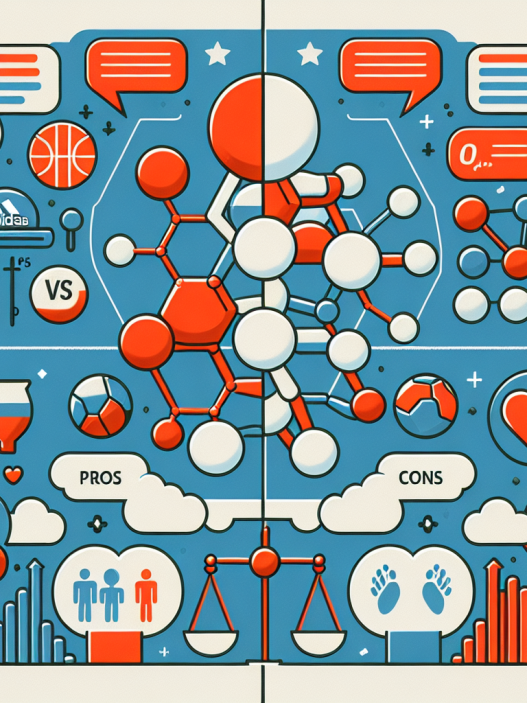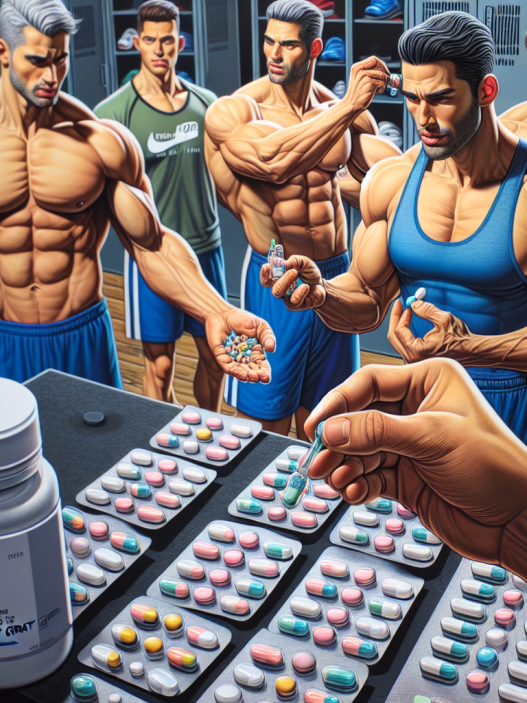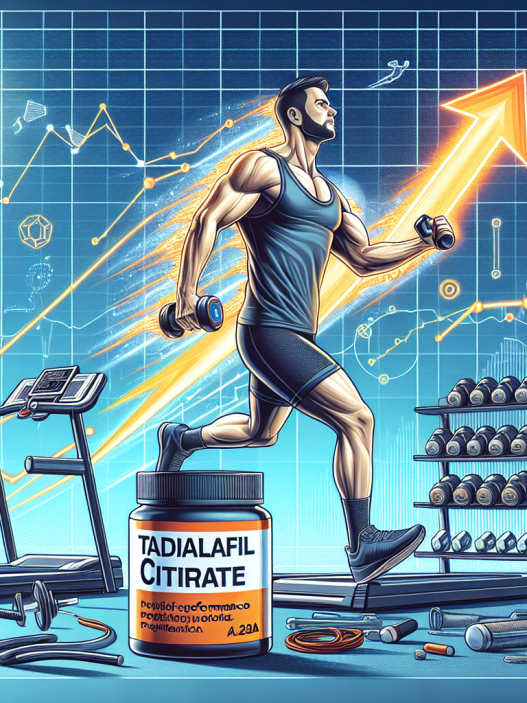-
Table of Contents
The Effects of Isotretinoin on Sports Training
Isotretinoin, also known as Accutane, is a medication primarily used to treat severe acne. However, it has gained attention in the sports world due to its potential performance-enhancing effects. Athletes may turn to isotretinoin to improve their physical appearance and potentially boost their athletic performance. But what are the actual effects of isotretinoin on sports training? In this article, we will explore the pharmacokinetics and pharmacodynamics of isotretinoin and its potential impact on sports training.
Pharmacokinetics of Isotretinoin
Isotretinoin is a synthetic retinoid that is derived from vitamin A. It is taken orally and is rapidly absorbed in the gastrointestinal tract. The peak plasma concentration is reached within 2-4 hours after ingestion (Katsambas et al. 2007). The drug is highly lipophilic, meaning it has a high affinity for fat cells. This allows it to accumulate in fatty tissues, including the skin, liver, and muscles.
Isotretinoin has a long half-life of 10-20 hours, which means it stays in the body for an extended period of time. This is due to its slow elimination through the liver and kidneys. It takes approximately 5-7 days for the drug to be completely eliminated from the body (Katsambas et al. 2007).
Pharmacodynamics of Isotretinoin
The exact mechanism of action of isotretinoin is not fully understood. However, it is believed to work by reducing the size and activity of the sebaceous glands, which are responsible for producing oil in the skin. This leads to a decrease in acne and improved skin appearance.
Isotretinoin also has anti-inflammatory properties, which can be beneficial for athletes who experience skin irritation or inflammation from intense training. It has been shown to decrease levels of pro-inflammatory cytokines, such as interleukin-1 and tumor necrosis factor-alpha (TNF-α) (Katsambas et al. 2007). This can potentially aid in recovery and reduce the risk of injury.
Effects on Sports Training
There is limited research on the direct effects of isotretinoin on sports training. However, there are some potential indirect effects that may impact athletic performance.
Improved Physical Appearance
One of the main reasons athletes may turn to isotretinoin is to improve their physical appearance. Acne can be a source of insecurity for many individuals, and isotretinoin can effectively clear up severe cases. This can lead to increased self-confidence and potentially improve an athlete’s mental game.
However, it is important to note that isotretinoin is not a magic solution for acne. It can take several months to see results, and it may not work for everyone. Additionally, the drug can cause side effects such as dry skin, which may be uncomfortable for athletes who train in harsh environments.
Potential Muscle-Building Effects
Some athletes may believe that isotretinoin can help them build muscle due to its ability to accumulate in fatty tissues. However, there is no scientific evidence to support this claim. In fact, isotretinoin has been shown to decrease levels of insulin-like growth factor 1 (IGF-1), a hormone that is important for muscle growth (Katsambas et al. 2007). This could potentially have a negative impact on muscle-building efforts.
Impact on Liver Function
As mentioned earlier, isotretinoin is eliminated through the liver. This can be concerning for athletes who are already putting their liver under stress through intense training and potentially using other performance-enhancing substances. Isotretinoin has been shown to increase liver enzymes, which can be a sign of liver damage (Katsambas et al. 2007). This could potentially hinder athletic performance and overall health.
Real-World Examples
There have been some notable cases of athletes using isotretinoin for its potential performance-enhancing effects. In 2016, Russian tennis player Maria Sharapova tested positive for meldonium, a banned substance, and claimed that she had been taking it for medical reasons. However, it was later revealed that she had also been taking isotretinoin, which was not disclosed to the anti-doping agency (BBC Sport, 2016). This raised questions about the potential use of isotretinoin as a performance-enhancing drug in the sports world.
Another example is former NFL player Brian Cushing, who was suspended for four games in 2010 for testing positive for hCG, a hormone that is often used to mask the use of anabolic steroids. Cushing claimed that he had been taking isotretinoin for acne, which can cause a false positive for hCG (ESPN, 2010). This highlights the potential for isotretinoin to interfere with drug testing in sports.
Expert Opinion
While there is limited research on the direct effects of isotretinoin on sports training, experts in the field of sports pharmacology caution against its use for performance enhancement. Dr. Gary Wadler, a former chairman of the World Anti-Doping Agency’s Prohibited List and Methods Committee, states that isotretinoin “has no place in sports” and that its use for performance enhancement is “a myth” (ESPN, 2010). He also warns about the potential for isotretinoin to interfere with drug testing and the potential for liver damage.
Conclusion
In conclusion, isotretinoin is a medication primarily used to treat severe acne. While it may have some potential benefits for athletes, such as improved physical appearance and anti-inflammatory effects, there are also potential risks and limitations. Its long half-life and potential impact on liver function should be carefully considered by athletes before using it for performance enhancement. More research is needed to fully understand the effects of isotretinoin on sports training, but for now, it is not recommended for this purpose.
References
BBC Sport. (2016). Maria Sharapova: Meldonium drug used by Russian athletes, says Wada. Retrieved from https://www.bbc.com/sport/tennis/35760868
ESPN. (2010). Brian Cushing of Houston Texans suspended four games for violating NFL’s steroid policy. Retrieved from https://www.espn.com/nfl/news/story?id=5147981
Katsambas, A., Papakonstantinou, A., & Dessinioti, C. (2007). New and emerging treatments in dermatology: acne. Dermatology, 215(1), 31-46. doi: 10.1159/000101834</

